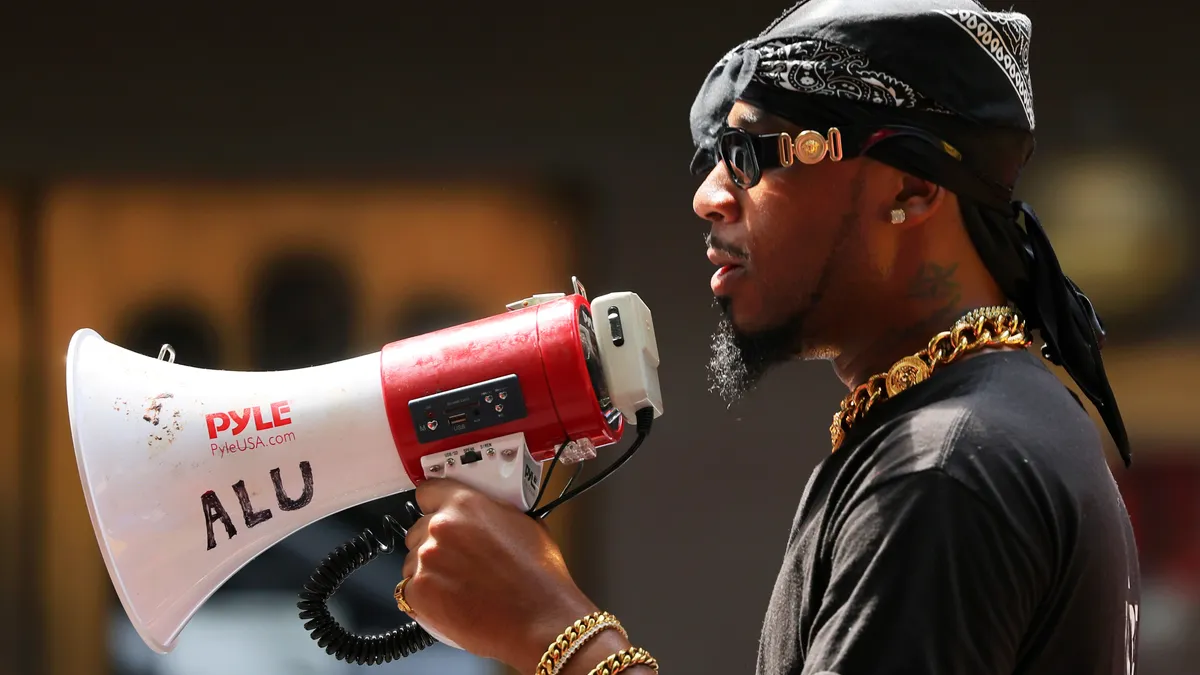Amazon Labor Union lead Christian Smalls on Tuesday petitioned the 2nd U.S. Circuit Court of Appeals for the chance to lead a class-action racial discrimination lawsuit against Amazon.
The crux of Smalls’ suit is that a lack of enforced COVID-19 safety precautions in the warehouse where he formerly worked mainly affected Black and brown Amazon workers. In contrast, Smalls’ complaint pointed out, the company intentionally addressed the health and safety of managers, who were allegedly disproportionately White, “with greater diligence.”
Smalls’ appeal to the 2nd Circuit follows a district court’s previous granting of Amazon’s motion to dismiss the case. The lower court disputed Smalls’ argument that he is eligible to sue on behalf of said front-line workers, given that he is no longer employed by Amazon and when Smalls was, he was a manager. The district court also argued Smalls failed to demonstrate racial discrimination.
On appeal, Smalls is also looking for his claim that he was unlawfully terminated in retaliation for participating in a COVID-19 safety-related protest outside of his place of work to be reviewed. The district court found that he failed to state a claim for retaliatory treatment.
Smalls made headlines in the spring of 2022 for successfully organizing the first Amazon warehouse union, and for doing so without relying on existing major labor unions. Smalls’ termination following a safety walkout was the catalyst for the forming of the Amazon Labor Union; union activities, however, are not the focus of his lawsuits.
Sociologists, epidemiologists and labor experts have traced the connection between essential or front-line work, class and race intersections, and Black, Indigenous, Pacific Islander and Latinx workers’ disproportionate exposure to COVID-19.
Despite the research, proving that harm took place may be challenging. A greater risk or fear of harm caused by COVID-19 isn’t enough to warrant retrospective relief, Amazon said. Additionally, the harm did not materialize, so it did not qualify as a concrete injury, the company said. Smalls also acknowledged that both non-White and White employees were among the front-line workers and management at said warehouse.













